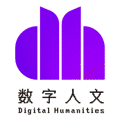上大文艺学国际课程||Introduction to the Digital Humanities数字人文导论
01
课程主题Course Topics:
#Introduction to the Digital Humanities 数字人文导论
02
主讲人简介Instructor:

James O’Sullivan 詹姆斯·奥沙利文
#Instructor:
Dr James O’Sullivan
曾于英国谢菲尔德大学、宾夕法尼亚州立大学执教,曾兼任华盛顿州立大学兼职教授,现任科克大学数字艺术与人文方向副教授,兼任科克理工大学兼职讲师。主要研究方向为文化产品的数字转换技术,同时关注阅读和写作实践。同时担任New Binary 出版社和《数字文学研究》编辑,已出版合著三本,期刊和会议论文三十余篇。

# Instructor:
Dr Órla Murphy
爱尔兰科克大学数字人文系主任,科克大学数字人文系创始人,曾先后主持爱尔兰以及欧盟多个数字人文研究项目,与芬兰等多个欧洲研究团队有密切合作,出版或合作出版Design Thinking for Digital Wellbeing,Algorithms and Procedures等多本专著,主要研究兴趣为3D打印、AR、VR、XR等技术与文化的跨学科研究。
03
课程内容Course Content:
PART I. Perspectives & Contexts
Lesson 1: The Humanities in a Digital Age
Students will be welcomed to the course and begin discussing what it means to do work in the humanities in the digital age.
Readings
Fitzpatrick, Kathleen. “The Humanities, Done Digitally.” Debates in the Digital Humanities. Minneapolis: University of Minnesota Press (2012). https://dhdebates.gc.cuny.edu/read/untitled-88c11800-9446-469b-a3be-3fdb36bfbd1e/section/65e208fc-a5e6-479f-9a47-d51cd9c35e84#ch02
Lesson 2: The DH Moment
Students will explore the emergence of the digital humanities and the advent of the “DH moment”.
Readings
Gold, Matthew K. “The Digital Humanities Moment”. In Debates in the Digital Humanities, edited by Matthew K. Gold. University of Minnesota Press, 2012.
http://dhdebates.gc.cuny.edu/debates/1.
Liu, Alan. “The Meaning of the Digital Humanities.” PMLA 128.2 (2013): 409–23.
www.mlajournals.org/doi/pdf/10.1632/pmla.2013.128.2.409
Lesson 3: DH Origins
The digital humanities will be further explored in the context of their historical emergence and differing global contexts will be examined comparatively.
Readings
Hockey, Susan. “The History of Humanities Computing.” A Companion to Digital Humanities, edited by Susan Schreibman et al., Blackwell, 2004.
Lesson 4: Definitions of DH
Students will engage with the major “canonical” definitions of the digital humanities.
Readings
Maron, Nancy L. “The Digital Humanities Are Alive and Well and Blooming: Now What?” Educause Review (2015).
PART II. Tools & Methods
Lesson 6: Knowledge Encoding
The fundamentals of encoding as practiced in the humanities will be discussed, introducing students to TEI-compliant XML markup.
Readings
Vanhoutte, Edward. ‘An Introduction to the TEI and the TEI Consortium’. Literary and Linguistic Computing 19, no. 1 (1 April 2004): 9–16.
https://doi.org/10.1093/llc/19.1.9.
Lesson 7: Digital Publishing & Open Knowledge
Students will look at the changing nature of publishing and dissemination in the digital age, and what such transformations might mean for their own work and scholarship. Some of the major opportunities of the digital humanities, particularly, the value of openness, will be discussed.
Readings
Gaertner, David. “To Blog, or Not to Blog?: Social Media as Academic Practice.” Novel Alliances (2015).
https://novelalliances.com/2015/01/13/to-blog-or-not-to-blog-social-media-as-academic-practice/
Blanke, Tobias, Elena Pierazzo, and Peter A. Stokes. ‘Digital Publishing Seen from the Digital Humanities’. Logos 25, no. 2 (2014): 16–27.
Burgess, Helen J. & Jeanne Hamming. “New Media in the Academy: Labor and the Production of Knowledge in Scholarly Multimedia.” Digital Humanities Quarterly 5.3 (2011).
https://digitalhumanities.org/dhq/vol/5/3/000102/000102.html
Lesson 8: Cultural Analytics
Students will explore the affordances and limitations of computer-assisted approaches to humanities research, so that they fully appreciate the benefits and drawbacks of the techniques to which they will be exposed to in subsequent lessons.
Readings
Flanders, Julia. “The Literary, the Humanistic, the Digital: Toward a Research Agenda for Digital Literary Studies”. Literary Studies in the Digital Age. Ed. Kenneth M. Price and Ray Siemens. Modern Language Association of America, 2013.
https://dlsanthology.mla.hcommons.org/the-literary-the-humanistic-the-digital/
Underwood, Ted. “Seven Ways Humanists Are Using Computers to Understand Text”. The Stone and the Shell. 4 June 2015.
https://tedunderwood.com/2015/06/04/seven-ways-humanists-are-using-computers-to-understand-text/
Lesson 9: Tools & Techniques
Students will be introduced to a range of tools and techniques for cultural analytics, including topic modelling and stylometry.
Readings
Blei, David M. ‘Topic Modeling and Digital Humanities’. Journal of Digital Humanities 2, no. 1 (2012).
http://journalofdigitalhumanities.org/2-1/topic-modeling-and-digital-humanities-by-david-m-blei/.
Burrows, John. ‘“Delta”: A Measure of Stylistic Difference and a Guide to Likely Authorship’. Literary and Linguistic Computing 17, no. 3 (2002): 267–87.
PART III. The Future Humanities
Lesson 10: DH Futures
What does the future of the Digital Humanities look like? Students will reflect on previous seminars, re-articulating the nature of the field at present, while also extrapolating potential future directions for the Humanities in a digital age.
Readings
Prescott, Andrew. “The Future and the Digital Humanities” Digital Riffs (2015).
https://medium.com/digital-riffs/the-future-and-the-digital-humanities-6c6b3f8a3295
04
讲座时间与平台:
Course time and platform:
课程时间:
6月12日、19日(周一)15:00-16:40
6月13、20日(周二)15:00-16:40
6月14、21日(周三)15:00-16:40
6月15(周四)15:00-16:40
6月16(周五)18:00-19:40
6月25(周日)18:00-19:40
课程平台:bilibili直播
账号:上大文艺学
*请参与直播课程的人员在直播期间保持秩序。可在聊天区域对讲座有关的内容进行提问,我们会进行整理并且统一反馈给教授。
05
课程书目:
Text Books and Reference Books:
Debates in the Digital Humanities
https://dhdebates.gc.cuny.edu/projects/debates-in-the-digital-humanities-2019
Literary Studies in the Digital Age
The Programming Historian
https://programminghistorian.org/
来源:批评理论研究
